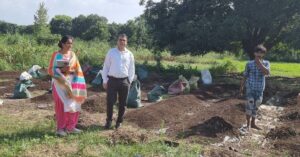Ex-Navy Commander Trains 10,000+ People To Grow Their Own Food Through Hydroponics!
C V Prakash started growing food in his Bengaluru home on his two-acre land. From spinach to strawberries, ex-serviceman C V Prakash sold several vegetables and fruits to Walmart until 2015.
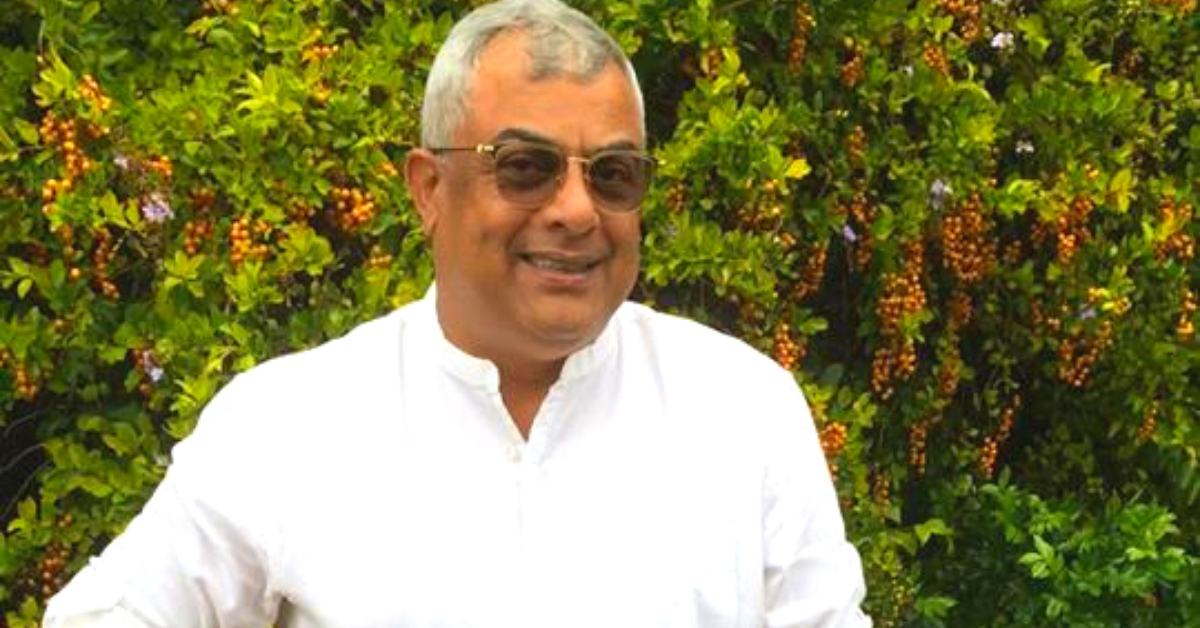
Nurture your plants the same way a mother nurtures her baby!
Giving this final piece of advice to his group of students in his recent food growing workshop, C V Prakash, a retired Lieutenant Commander from the Indian Navy, starts packing his bag as a new group of students eagerly await his arrival in Pune.
Though he is running on a tight schedule, the ex-serviceman from Dharwad, Karnataka, is excited to share his journey of growing his own food since the last 19 years with The Better India.
As he continues packing, the 56-year-old in a child-like voice says, “There is no bigger pleasure than eating the food that you have nurtured with your hands.”
Being born in a military family, the obvious career choice for him was to serve the nation. After graduating from the National Defense Academy in Pune, he joined the Navy’s submarine arm.
Here, he served for 14 years and retired at 35 to begin an alternate career.

In 2000, he migrated to Australia and started a consultancy firm that dealt with clients from across the world. It was during one of these company engagements that he came across the concept of Hydroponic farming.
“A part of my work involved visiting client sites, and so, when I visited a company in Sri Lanka, I came across greenhouses comprising flowers and vegetables. The organic plantation was done without any soil or pesticide,” he says.
Explaining Hydroponic farming in simple terms, he says, “It is a method of cultivating plants without soil by using mineral nutrient solutions in a water solvent. Terrestrial plants may be grown with only their roots exposed to the mineral solution. It uses less water and space, and yields more crop cycles than conventional farming.”
After the visit, he learnt the technique of hydroponics in Australia and went on to work with several growers, consultants and stakeholders in the field.
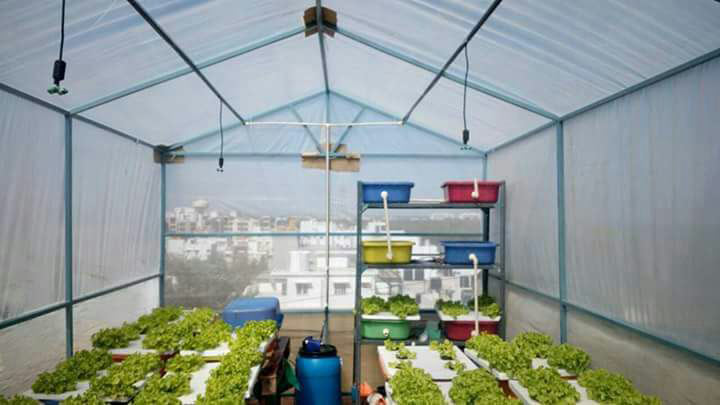
Once he acquired the required experience, the Jawan moved back to his motherland in 2008 to serve his country again, but this time, as a Kisan.
Everyone is aware of the condition of food outputs and the quality of food produced in India. Besides, the burden on farmers to cater to our huge population will not help in bridging the demand and supply gap in future. So, I wanted to do my bit by telling people that they can grow their own food which is 100 per cent organic, he says.
He adds,
There are multiple benefits of hydroponic farming. It uses 95 per cent less water and is completely chemical-free. It is a one-time investment that yields profitable results.
Tryst With Organic Farming
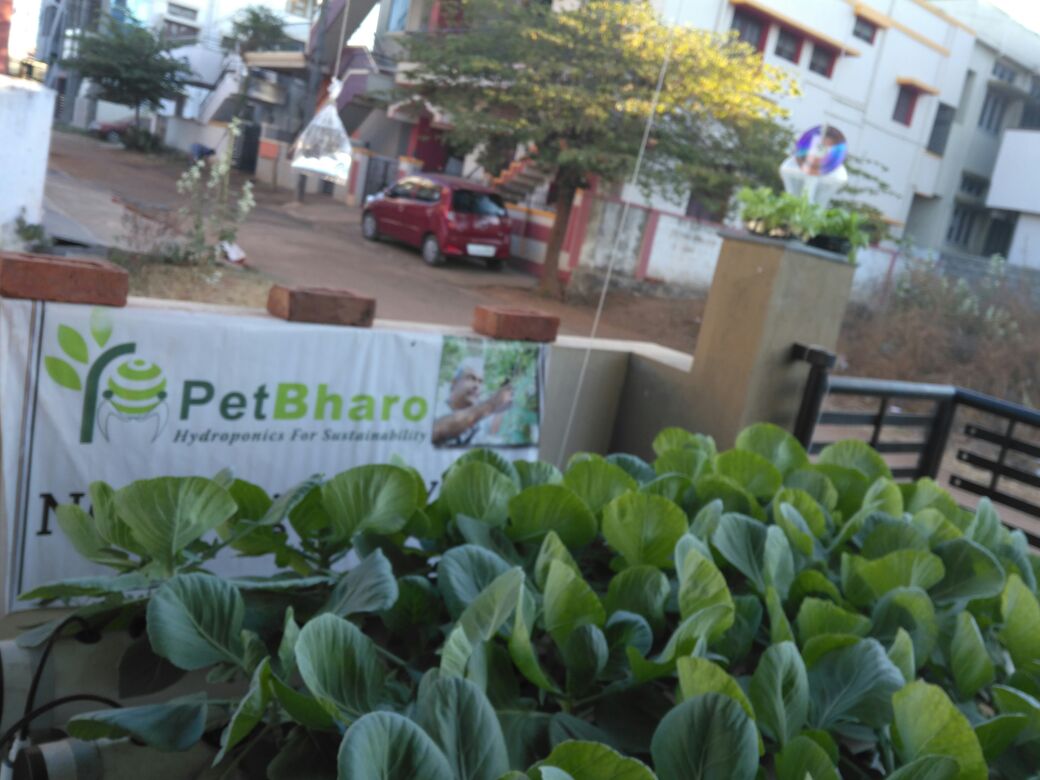
After returning to India, Prakash started growing food in his Bengaluru home on his two-acre land. From spinach to strawberries, Prakash sold several vegetables and fruits to Walmart until 2015.
Meanwhile, he also kickstarted his pet project ‘Pet Bharo’ which translates to ‘Fill your stomach’. Under this, he started a one-day workshop for people interested in cultivating their food. He also began to offer detailed workshops that lasts for three months.
“Our paid workshops teach the importance of knowing that Hydroponics is a science. It’s about the procedure, process, diligence, persistence, eye for detail, passion, purpose and perseverance. Our methodology ensures teaching easy ways, so anyone with a basic understanding of high school science can get a grab on the subject,” he says.
Post the workshop, the retired commander also guides his students till they grow their own food, “From helping my students choose quality seeds, water testing facilities to guiding them in their plantation, I am constantly in touch with them through WhatsApp groups. This is to ensure that they do not give up.”
So far, he has visited 13 cities across India and taught more than 10,000 people from varied backgrounds including homemakers, students, elderly, teachers, lawyers and corporate houses.
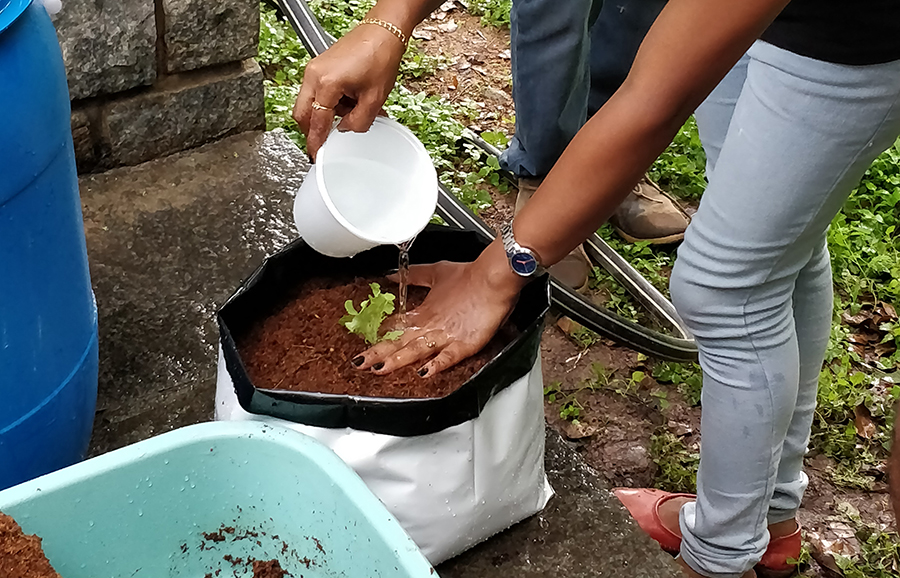
The impact of taking these workshops goes beyond the students, says Prakash. Many of his students have gone on to practice hydroponic farming commercially.
Among his proud moments that changed people’s lives, he cites an example of a student who went to teach a tribal community residing near Bandhavgarh Tiger Reserve in Madhya Pradesh. Twelve people from the community are now earning a livelihood by practising hydroponic farming.
Pet Bharo’s detailed lessons on techniques and procedures were easy to understand, which further fuelled my interest in growing and building a self-sustaining home garden. I have now grown tomatoes, red bell peppers, basil, cucumbers, spinach and lettuce. It has been a pleasure learning the science of hydroponics, says Ambica Dewaikar, one of the workshop participants.
Besides workshops for which Prakash charges a fee, he also does pro bono training for people, helping them set up their small farms.
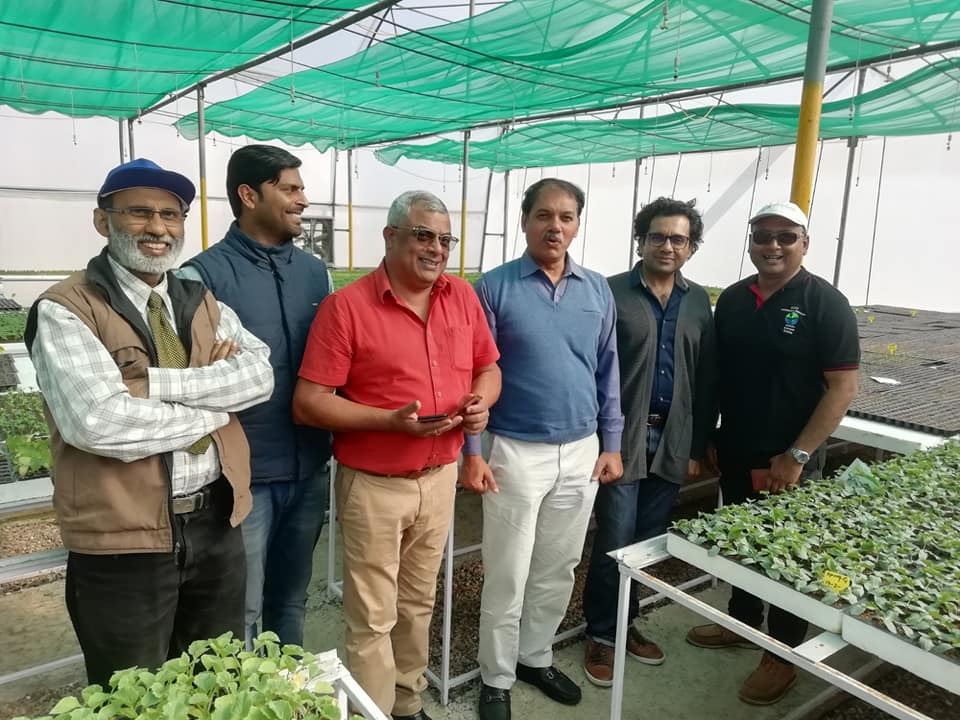
In 2009, Prakash trained the teachers from Sandra Ricketts Public School in Bengaluru. The school, which runs an orphanage housing 15 children, set up a 131 square foot garden.
“The prices of vegetable had doubled, and we wanted to grow our own produce. But with conventional gardening, we would have been able to produce only one pound of food. So we adopted hydroponic farming that helps us produce eight pounds of food per day,” says Ruth Vidyasagar, matron of the school.
Prakash was also instrumental in setting up a rooftop garden at Sai Super Specialty Hospital in Bengaluru. A couple of resident doctors and nurses were taught the process, who in turn started gardening. The food produced, is used by the hospital canteen to provide nutrient-rich food to its patients.
In 2016, the University of Agricultural Sciences at Dharwad awarded Prakash with the Jai Jawan Jai Kisan Award for his efforts in helping people cultivate their food.
Also Read: Bengaluru Initiative Helps Indian Army Veterans Turn Entrepreneurs After Retirement!
“It has been 19 years since I began growing my food and almost ten years since I began the workshops. It is only because of my Navy background that I was able to start my second innings. My only objective is to help people get self-sufficient and healthy by consuming natural food,” the retired commander signs off.
It seems that a serviceman to the nation will always be a serviceman!
To know more, look up Prakash’s website or write to him on [email protected].
(Edited by Shruti Singhal)
Like this story? Or have something to share?
Write to us: [email protected]
Connect with us on Facebook and Twitter.
If you found our stories insightful, informative, or even just enjoyable, we invite you to consider making a voluntary payment to support the work we do at The Better India. Your contribution helps us continue producing quality content that educates, inspires, and drives positive change.
Choose one of the payment options below for your contribution-
By paying for the stories you value, you directly contribute to sustaining our efforts focused on making a difference in the world. Together, let's ensure that impactful stories continue to be told and shared, enriching lives and communities alike.
Thank you for your support. Here are some frequently asked questions you might find helpful to know why you are contributing?


This story made me
-
97
-
121
-
89
-
167




